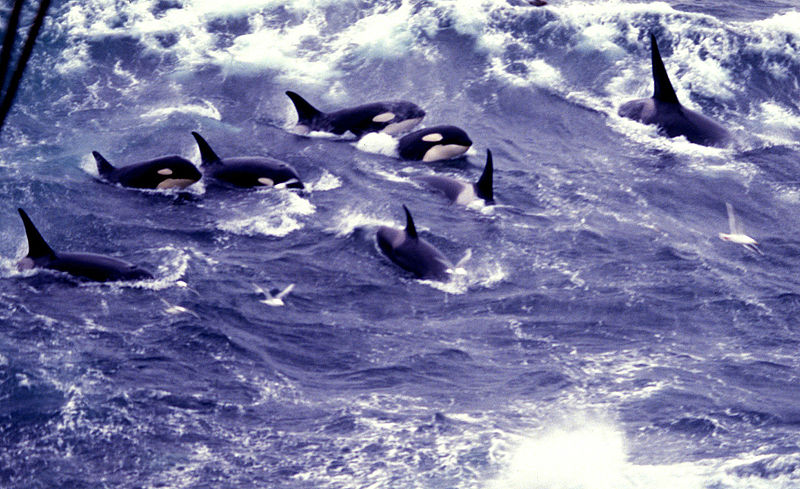
Pods of crafty orcas in Alaska’s Bering Sea have figured out an easy way to get fed. Instead of seeking out the fish themselves, the clever whales chase down fishing boats and steal the entire day’s catch, as much as 20,000 to 30,000 pounds of halibut and black cod, in a single swoop.
Killer whale “bandits” are not a new phenomenon. Japanese fishermen have reported being pursued by pods since the 1950s, and there have been numerous other encounters reported around Alaska and other parts of the world since. However, the increasing frequency of whale fish theft in the Bering Sea’s continental shelf, which boasts a high density of the mammals, is now threatening the livelihood of fishermen that frequent the area.

Paul Clampitt, a local fisherman, says his crew tried to ward off the whales with loud sounds. Though that worked for a short time, the mammals now consider the noise “a dinner bell.” Jay Herbert, who compares the thieving orcas to “motorcycle gangs,” tried using sonars that emit a frequency meant to keep the whales away. He too met with little success. According to the veteran fisherman, the smart whales deliberately seek out longliners, and, at the first opportunity presented to them, strip the hooks clean, leaving behind just the lips of the fish caught!
Robert Hanson, who has been frequenting the Bering Sea since 1992, has had numerous encounters with the stealing orcas and lost each time. He recalls one incident when the aggressive whales hounded his boat non-stop for hours. In an attempt to outrun them, the crew wasted 4,000 pounds of fuel and ultimately lost the 12,000 pounds of halibut they had caught. During another expedition, 50 whales pursued his boat for over two days, even after the engine had been turned off. The frustrated fisherman finally gave up trying to fish and returned home empty-handed. The longliner has also observed juvenile orcas in the area and believes they are being taught the art of stealing by their mothers!

NOAA Fisheries biologist John Moran is not surprised at the mammals’ thieving prowess. The expert says whales are skilled hunters who can distinguish between the sounds of different boats and even recognize the sounds of the hydraulic system that places the fishing gear into the ocean. The expert quips, "Grabbing a fish off a line is nothing.” Since they are social animals, it is easy for the whales to pass their skills to others.
Orcas are not the only whale species that have learned to steal from humans. In the Gulf of Alaska, sperm whales, some as large as school buses, also conduct similar heists. Longline fishermen off Washington, Chile, Australia, Hawaii, and many other countries have reported similar incidents.
There is, unfortunately, no easy fix to this problem. One of the solutions being considered is using pot traps similar to the ones used to catch crabs. However, the cost of switching from longline to pot fishing is prohibitive, especially for small-scale fisheries. There is also no guarantee the catch will be safe from the intelligent mammals who, many fear, will eventually figure out how to open the pots!
Resources: seattletimes.com,adn.com,